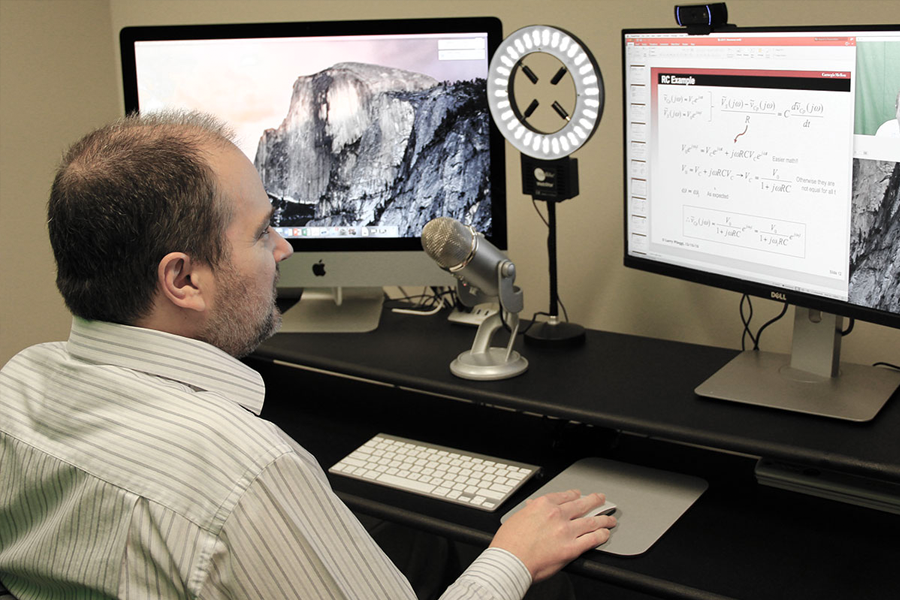
Enhanced learning experiences
The educational landscape is undergoing a revolution; discussions about educational techniques touch on a number of topics from affordability of college and value of college education to democratizing education through smart use of technology. While the appearance of technologies such as massive open online courses (MOOCs) has brought many of such issues to the forefront, MOOCs are not the only product of these discussions.
Physical campuses are here to stay; that much is undeniable. The benefits of “minds rubbing against minds” are impossible to ignore: learning in physical environments encourages and enhances both inside- and outside-of-the-classroom student participation. The quality of education is the driving force in these environments, with a clear and sustainable, evidence-based model to support a superior quality of education. Institutions such as Carnegie Mellon have been striving to adapt their educational offerings to students’ needs, and the Department of Electrical and Computer Engineering (ECE) has been developing a suite of technological learning options to offer superior quality education and integrate our global locations.
For the past few years, ECE has offered online, for-credit courses in its curriculum using a number of platforms, from broadcast to flipped classrooms, involving both residential and remote students. Jelena Kovačević, ECE professor and department head, was one of the first in the department to offer a flipped classroom.
“Flipping a classroom means pre-recording lectures and using face-to-face time for interactive activities, where I feel I bring the most to the students and can adapt my teaching to their particular needs,” says Kovačević. “My students have to come to class prepared; they then spend the time in small groups working on specific problems that they share with the rest of the class. I find that the conversations we have in this environment outweigh anything I could teach in a traditional classroom setting. For my class and several others, we partnered with Acatar, a Carnegie Mellon startup, to seamlessly integrate technology-enhanced learning into courses.”
Acatar, acquired by The Learning House, Inc., is one of the cutting-edge online education technology companies that incorporate the latest advances in the science of learning. Headquartered in Pittsburgh, PA, Acatar provides an easily customizable approach for professors to create technology-enhanced courses.
ECE takes a flexible approach to using technology. Some classes are offered or developed using the Acatar platform, but the videos may be hosted on various websites such as YouTube or Blackboard. Still others are broadcasted to create a true global campus, connecting the Pittsburgh campus to our locations in Silicon Valley, Rwanda, China and Portugal. This year, 14 courses are being offered in this manner, and 23 ECE faculty members incorporate some type of broadcasting technology into their teaching.
In an effort to encourage ECE faculty to create teaching videos and make recording easier, the department has invested in a media room. Purposely staged as a relaxed environment, the media room is a welcoming and user-friendly space equipped for recording lectures. “This room allows us to record and then broadcast lectures globally while providing technical support to anyone using the room,” says Meighan Harding, director of operations in ECE.
“Our ultimate driver is quality; we use technology only when it improves teaching,” says Kovačević. “Our aim is to enhance traditional residential learning and adapt to individual learning styles, backgrounds and individual teaching styles of faculty. By using these technologies, we are able to integrate our global campuses and expand the reach of the CMU name.”